The industrial and logistics real estate sector has long been male-dominated. But equity is on the horizon – thanks to a recent report commissioned by Women in Industrial.
Detailing 11 actionable steps, the report identifies a clear path to dismantling systemic barriers to female participation – and increasing gender parity in the sector.
Women in Industrial, alongside our partner organisations, is at the forefront of implementing these steps.
Building momentum
The push for gender diversity in the industrial sector is reflective of the broader workforce.
But while we’re seeing statistics improve across Australia, a recent report commissioned by Women in Industrial (WiN) – Through the Looking Glass – A Critical Examination of Methods to Improve Female Participation in Australian Industrial Property Agency – indicates that only 4% of industrial sector agents are women.
This confronting statistic highlights the need for coordinated, industry-wide action.
Fortunately, the report also found a concrete commitment to increasing female representation within industrial agencies, a sentiment echoed by WiN members.
Janet Joljian is a manager at CBRE and a WiN subcommittee member. Her experience both on the ground and with WiN reflects report findings.
‘A lot of people, especially institutional clients, want women to have opportunities,’ says Janet. ‘For example, many clients won’t appoint an agency unless there’s a woman on board.’
Research from the Workplace Gender Equality Agency (WGEA) details a wealth of benefits that flow from workplace gender equity – including greater economic growth and organisational performance.
But as Janet explains, the benefits go beyond numbers.
‘When you’re trying to sell a property for top dollar, the owner wants to know they’re in safe hands and that you’re reliable,’ says Janet. ‘Women bring a certain level of vulnerability and empathy to the sale – and that’s really valuable.’
Creating change in four key action areas
As investment in the industrial and logistics sector continues to soar post-pandemic, the industry is seeing record-breaking levels of female recruitment.
But according to the report, all stages of the Employee Life Cycle (ELC) must be addressed to increase female attraction, retention and progression.
And how do you best tackle a complicated problem?
Break it down into manageable chunks.
The report raises four initiatives – or categories for change – as focus areas. These are Training and Development, Policies and Procedures, Gender Targets, and Flexible Working.
Since its inception, WiN’s strategic plan has been to work with industry to increase female representation across the industrial agency sector. And in 2023, we’ll be throwing our support behind these four key areas.
- Training and Development
This initiative proposes a concise solution: craft a training module that equips organisations with the knowledge and skills to cultivate inclusivity, allyship and sponsorship.
The module will educate employees on best practices in leadership – and emphasise the need to eradicate discrimination.
WiN will engage in grassroots action targeting schools and universities to attract female talent into the industrial sector. Plus, we’ll encourage organisations to define – in writing – clear pathways for career progression.
- Policies and Procedures
One of the most effective ways to empower women in the workplace is to improve their economic footholds.
As such, the review advocates for a dynamic approach to remuneration policies.
It suggests agencies should regularly update organisational policies and procedures to elevate the base salary of female employees. This will ensure they’re adequately compensated for their contributions over time – particularly during or following parental leave.
Many roles in this sector are commission-based. That means when you’re not working, you’re not earning.
‘My role is a brokerage role,’ Janet notes. ‘So if I’m not doing deals and writing fees, I can’t be given a long-term opportunity.’
While compensation policies weren’t included in the review, many interviewees mentioned that depending solely on commissions shouldn’t be standard practice.
- Gender Targets
Setting gender targets in the workplace is critical for promoting diversity and inclusion. Targets provide a clear roadmap for organisations to measure their progress – and hold themselves accountable.
The report recommended formal gender targets be established across industrial agencies. Targets should cover new-hire and experienced-hire levels. And they should be both recruitment and promotion based.
Meaningful change goes beyond just headcount. So the report also suggests that targets be embedded into the remuneration structure to promote collaboration with women within agency teams and improve work culture.
- Flexible Working
Finally, the review suggests flexible working arrangements will help structurally support women to enter and progress within the commercial property industry.
WiN will work with organisations to promote the adoption of flexible working for women and men, including part-time and altered hours.
According to research from WGEA, 82% of employees support flexible work. Incorporating flexible work across the board will not only allow men to model and entrench positive behaviour, but also take advantage of the benefits of flexible work arrangements.
The road ahead
Industrial is Australia’s fastest growing property sector. There has never been a more critical moment to address the structural barriers to gender parity.
WiN’s collaboration with industry organisations will help to foster a collaborative, supportive environment for women. And a positive culture goes a long way in securing and retaining top female talent.
‘This industry can be cutthroat,’ says Janet. ‘But times are changing, particularly as more women begin to support other women.’
Want to learn more? Read the full report at Women in Industrial.














